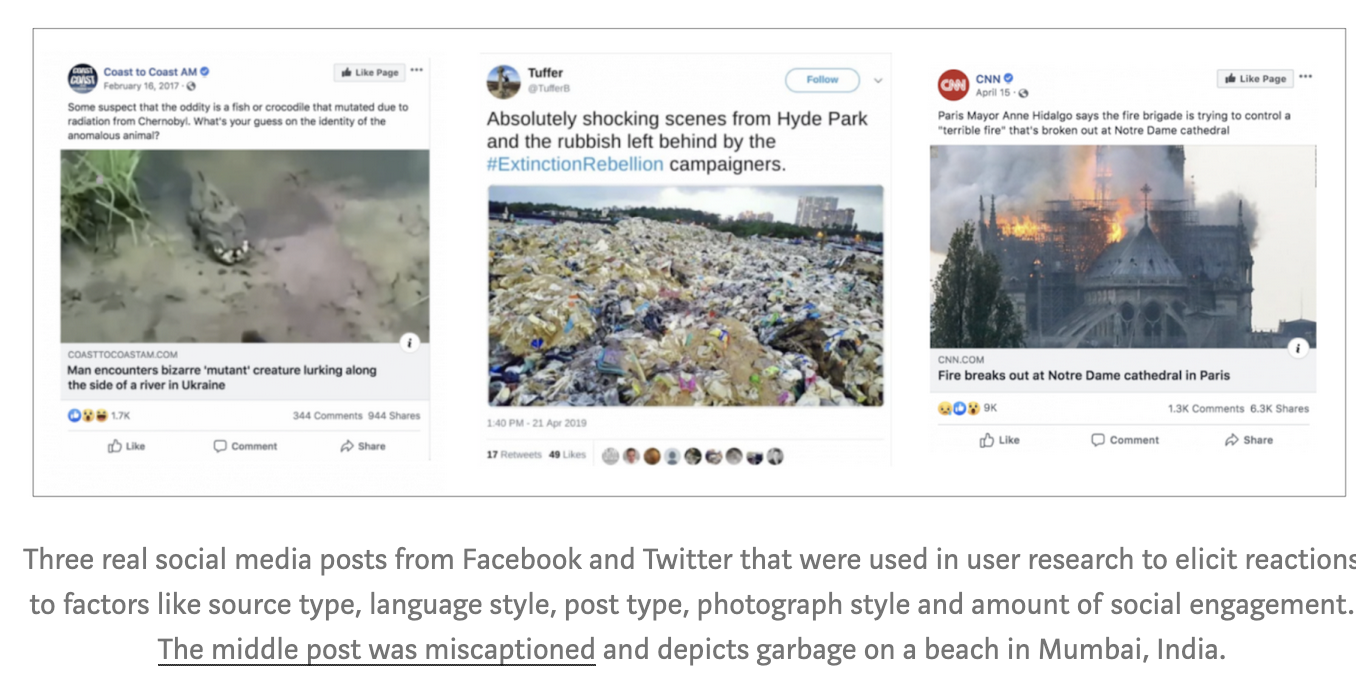Report From the NY Times News Provenance Project: “How Do People Decide Whether to Trust a Photo on Social Media?”
From New York Times Open:
This is part one of a behind-the-scenes look into the research, design and prototyping behind The News Provenance Project’s proof of concept that shows how publishers can use blockchain to surface source information about news photography. [Part 2 and Part 3 are linked to below].
[Clip]
If anything can be faked, how can people trust that credibly sourced visuals are accurate? Do people still believe what they see in photojournalism? Spurred by questions like these, the New York Times R&D team created The News Provenance Project to explore solutions to issues of misinformation around visual journalism. During the summer and fall of 2019, we conducted 34 total interviews over one round of user research and two rounds of prototype testing to investigate ways of attaching provenance information to news photography. What we found was that despite concern otherwise, Americans do not operate from a “post-truth” psychology. Even in today’s polarized climate, people with wildly different political views still appreciate the original context of a news photograph.
Yet, as we tested different designs that displayed context, a new question arose: will people even notice accurate source information in the first place?
At The News Provenance Project, we wanted to find out how publishers can help readers make more informed, confident judgements about the credibility of news photography. To do this, we focused on how we might surface the metadata — such as descriptive captions, time and location information — that journalists embed in photography files. At the same time, we wanted to see if we could leverage the history-tracking capabilities of blockchain technology to ensure that that metadata stays embedded with news photography as it travels around the internet. We worked with IBM Garage, which built a prototype using the open-source Hyperledger Fabric platform (more on the prototype later).
However, even if we could use blockchain to effectively display the history of a news photo, we still needed to understand what gives people the confidence to make informed judgements about the credibility of news photography when it matters most.
Read the Complete Blog Post (approx. 2100 words)
Blog Post #2: What If Every News Photo on Social Media Showed Contextual Information? (approx. 2000 words)
Blog Post #3: Can Publishers Use Metadata to Regain the Public’s Trust in Visual Journalism (approx. 1800 words)
Filed under: Companies (Publishers/Vendors), Interviews, News
About Gary Price
Gary Price (gprice@gmail.com) is a librarian, writer, consultant, and frequent conference speaker based in the Washington D.C. metro area. He earned his MLIS degree from Wayne State University in Detroit. Price has won several awards including the SLA Innovations in Technology Award and Alumnus of the Year from the Wayne St. University Library and Information Science Program. From 2006-2009 he was Director of Online Information Services at Ask.com.



